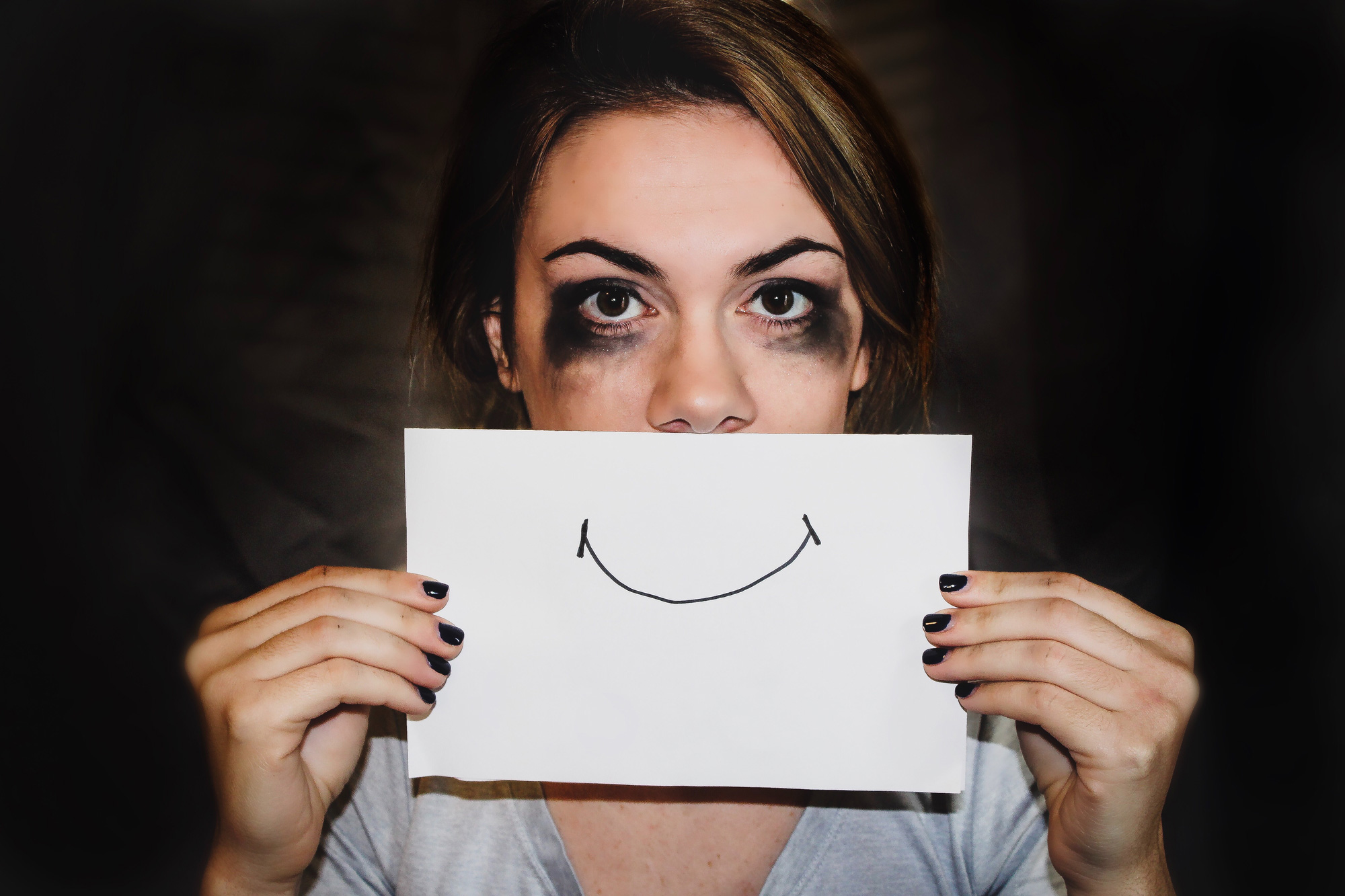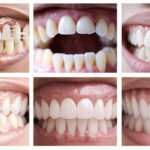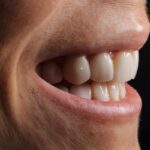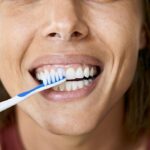Your teeth.
They have evolved for the purpose of making food digestible. And yet, teeth have become more than just parts of your mouth with a specific biological function. They are a primary indicator of attractiveness, a key part of one’s physical appearance.
Why is that? Because your smile is one of the very first things others notice about you, with your teeth taking center stage. In a survey by the American Academy of Cosmetic Dentistry, 48 percent of respondents said a smile is what they remember most after meeting someone. For people with crooked teeth, this truth can be psychologically damaging.
If your teeth are less than perfect, you are probably already self-conscious about being judged because of your imperfect mouth. Pile the knowledge that bad teeth are often associated with defects in character, intelligence and morals, as the team at oral health advocate StarSmilez notes, and the way you see yourself through your own eyes, and others’, isn’t likely to be pretty.
In the long run, buck teeth can have some unforeseen negative impacts on your quality of life.
The Ugly Truth About Buck Teeth
Crooked teeth or buck teeth or any other label you want to put to a less than perfect smile can make your life miserable, simply because of the cultural stigma attached to crooked teeth.
Here’s a look at some of the most common issues that someone with crooked teeth may have to deal with.
Social Anxiety
Social situations can be paralyzing for someone with imperfect teeth. They often suffer severe social anxiety at the thought of having to expose their imperfections to others.
In an article for The International Center for Nutritional Research, Dr. Gerald H. Smith explains that those with social anxiety have an intense fear of embarrassing themselves, so they go to extreme lengths to avoid trigger situations, such as meeting new people, making themselves the center of attention, speaking in public and attending social gatherings.
This avoidance of social situations limits their abilities to interact with and form relationships with others.
It doesn’t help that those with teeth issues tend to have speaking issues, exacerbating their social anxiety. According to speech therapists, the alignment of teeth can have a significant impact on speech. People with buck teeth often have issues with lisping, whistling, slurring, and mispronouncing words.
Because people tend to associate speech problems with a lack of intelligence, having these issues can cause people who suffer them to panic at the thought of social interactions. It can get to the point where they prefer to not interact at all but isolate themselves from others to avoid embarrassment.
Self-Induced Isolation
Humans are social creatures by nature, but people with less than perfect teeth tend to isolate themselves from others for fear of being judged negatively. Isolation can lead down a rabbit hole of other issues.
We are hard-wired to interact with others and human contact is important to our well being, experimental psychologist Frank T. McAndrew, Ph.D. writes. The loneliness of isolation can lead to increased levels of stress hormones in the body, poor sleep, a weakened immune system, and cognitive decline.
Our emotions are also heavily impacted by isolation. Interacting with others gives meaning to our emotions and helps us respond in appropriate ways. Psychosocial rehabilitation specialist Kendra Cherry says that being able to communicate socially, interpreting and reacting to others’ emotions is essential.
People that isolate themselves aren’t able to understand their emotions, which can lead to the inability to cope with them.

Low Self-Esteem
A study on the impact of dental disorders on adolescent self-esteem published in the Journal of Clinical and Diagnostic Research shows a significant connection between self-esteem and how attractive a person perceives themselves to be.
This study was specific to adolescents, but the premise is universal: Dental aesthetics are tied to our definition of attractiveness. People with imperfect teeth often see themselves as less attractive than others who have “perfect” teeth.
Elizabeth Venzin, Founder and CEO of MindShift, an Australian national self-esteem initiative, warns that negative thoughts adversely affect the way we feel about ourselves and lower our self-esteem, which can eventually lead to bigger mental health issues.
In general, those with low self-esteem suffer a reduced quality of life compared to those with high self-esteem. David Fonvielle, the creator of the self-improvement site, Always Greater, describes the negative impacts of low self-esteem:
- It creates unhappiness with life.
- Induces a feeling that life is meaningless.
- Encourages self-destructive tendencies.
- Saps confidence.
- Reduces motivation to achieve.
- Increases stress.
- It takes the joy out of social interactions.
These long-term effects make it difficult for someone who suffers from low self-esteem because of crooked teeth to overcome negative thoughts about themselves and interact happily with others.
Reluctance to Smile
Smiling is a universal body language element that conveys happiness, acceptance, friendliness and countless other positive emotions. We often smile to communicate without even realizing it.
At least those with aesthetically-pleasing teeth do.
One in four people avoids smiling due to the condition of their mouth and teeth, according to a study by the American Dental Association. People with imperfect teeth tend to fight the urge to smile so they can hide their teeth and avoid negative judgment.
People who hide their smiles have trouble finding enough confidence to make social connections, which is why they are often isolated from others. Smiling makes a person more approachable, Alena Hall at Huffington Post notes.
The reluctance to smile inevitably eats away at a person’s ability to be happy and positive about themselves and the world around them. KidsHealth explains that smiling can make you feel happier, reduce your stress levels and help you bond with others.
When you don’t smile, you don’t get to experience the joy and positive benefits that a simple smile can bring.
Depression
Researchers with the Deakin IMPACT Strategic Research Centre studied data from a health survey of over 10,000 people and found that poor dental health is linked to an increased likelihood of becoming depressed.
In an oral health fact-sheet for dentists highlighting depression in adults and the role dentists can play, the University of Washington’s School of Dentistry characterizes depression as “an unpleasant mood state” that involves low self-esteem, the loss of interest in activities, social withdrawal, and eating/sleep disturbance.
When a person with bad teeth won’t go out in public, is anxious about interacting with others, doesn’t have a high opinion of themselves and refuses to smile, they put themselves at risk for battling depression in the long run.
And, depression is linked to physical ailments, not just emotional and mental issues. People who are depressed tend to lose weight from a lack of appetite, battle fatigue, suffer from malnutrition and forget things easily.
Nobody wants to battle depression, yet people with buck teeth often find themselves fighting it because of the psychological toll exacted from them because of their bad teeth.

The State Of Your Teeth Can Affect Your Quality Of Life
Your quality of life has a strong tie to the quality of your teeth. Whether that is morally or socially right or wrong, it is a harsh truth.
While a mouth full of straight, bright white teeth can give you a social advantage, an imperfect mouth can have a severely detrimental impact your quality of life, affecting your social, emotional and physical well-being, concludes a study done by clinical psychologists Salvatore Settineri, Amelia Rizzo, Marco Liotta and Carmela Mento.
An imperfect mouth can keep you from forming romantic relationships because good teeth is one of the key determinants of perceived attractiveness in humans, Dr. Rajiv Jhangiani and Dr. Hammond Tarry explain, along with healthy skin, good grooming and a good smile. Because attractions plays a strong role in dating, people with crooked teeth fear they are at a disadvantage for finding a partner, which holds them back from seeking out these relationships.
Bad teeth can also keep you from getting your dream job.
A study by the British Dental Association shows that 62 percent of respondents agreed that mouth disorders — such as crooked teeth — would harm an applicant’s chance of employment. Sixty percent said an imperfect mouth would also hinder promotion prospects. Why? It goes back to the social stigma of someone with bad teeth being less than or not caring about their appearance.
While not everyone with less than perfect teeth experiences these issues, many certainly do. Fortunately, there are medical and cosmetic dental options and procedures that can “fix” your imperfect mouth, giving you more confidence to face the world with a smile.
Images by: Sydney Sims, Free-Photos, MasimbaTinasheMadondo









